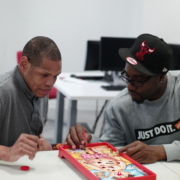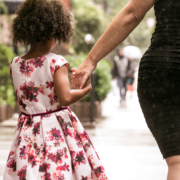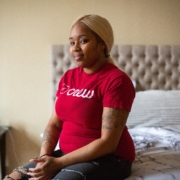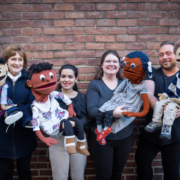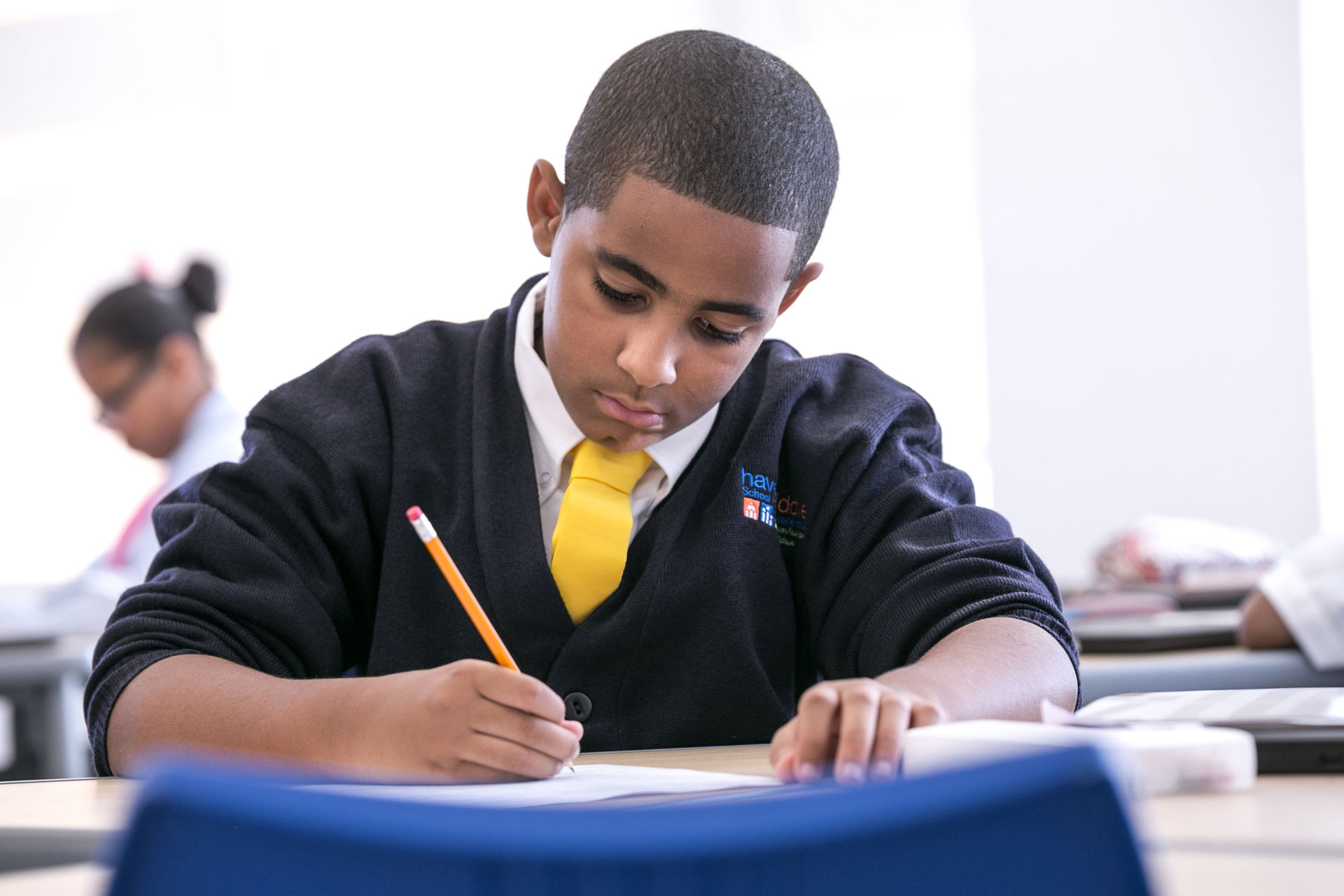For over 150 years, The New York Foundling has worked in partnership with our neighbors to ensure that everyone can meet their full potential when facing challenging situations. This hasn’t changed, and our staff continue to provide life-changing and meaningful support in light of the COVID-19 pandemic. This series shares how The Foundling’s many programs are responding to the needs of their community.
The Foundling’s Day Habilitation programs for people with developmental disabilities are based in the community and give participants an opportunity to connect with others through social, volunteer, and work-related activities. Such personalized activities help participants experience new things, get to know their likes and dislikes, and create rich experiences shaped by their preferences. These programs are offered to people living both in the community and in Foundling residences across the Bronx, Brooklyn, Queens, and surrounding counties.
Our dedicated Day Habilitation staff continues to provide meaningful engagement and support to individuals with developmental disabilities both in and out of The Foundling’s residences.
For people living with developmental disabilities, confinement can quickly become a serious emotional burden. That’s why our Day Habilitation Specialists continue to provide meaningful daily services and programs, despite the limitations of social distancing. Instead of picking participants up and bringing them to program or classroom sites as they normally would, staff members have now donned their personal protective gear and signed on to their laptops to bring the programs to them.
For about eight hours each day, Monday through Friday, Day Habilitation Specialists are spending in-person time with program participants living in Foundling group residences, keeping their spirits up while guiding them through various academic and social activities to keep their minds occupied and engaged.
As much as possible, staff and participants are maintaining six feet of distance from each other. In cases where individuals are focusing on building their fine motor skills, like handwashing, staff are wearing masks and gloves to protect themselves and our clients as they complete the tasks at hand.
For program participants living at home, however, Day Habilitation staff like Monee Smith are forced to stay in touch by phone. “We’d do basic math skills over the phone or work on vocabulary,” Monee says.
Recently, she’s been transitioning participants to live video chatting. While technology accessibility was an issue for many at the beginning of the outbreak, The Foundling’s programs have worked to distribute tablets, Monee says.
The plan is to hold two-hour sessions with each group of participants every day. “Some will be able to join the sessions on their own, but for those that need help, a parent, guardian, or in-house staff member will help them log on.”
The ability to share screens, show videos, and see familiar faces makes the day’s lessons and activities so much more engaging. “And it’s teaching them how to use modern technology,” explains Monee.
“We want to make sure that those who don’t live in our residences are not forgotten,” said Ashley Gibbs, Coordinator for The Foundling’s Day Habilitation Services, highlighting the importance of engaging with home participants.
Whether staff meet participants in-person or virtually, many of the day-to-day activities remain the same – and there have been some special surprises as well. When our programs shifted the delivery of services from community-based to home-based, all participants received personalized care packages with materials like worksheets, crayons, and construction paper. Some participants work on their math, writing, and reading skills, while others are guided through sensory and motor skill-building activities. Additionally, there’s also time allocated during the day for puzzles, games, art, and crafting projects like Mother’s Day cards.
Unfortunately, staff can no longer take participants on recreational field trips. Steven Moore used to take his group to the beach or the pier for fishing. Stephanie Tauly took her group to the movies every Tuesday.
But staff have been creative in finding special ways for participants to feel engaged. Movie day still happens, only now through streaming services. YouTube videos guide groups through stretches, yoga poses, and simple exercises. And others have taken virtual museum tours together.
Program participants often like routines, and COVID-19 has unfortunately disrupted them. “I try to redirect them when they are feeling overwhelmed, depressed, or frustrated,” Monee relates, “They miss peer-to-peer contact, going outside, going on trips, socializing, just being out and about.”
“I find ways to keep them productive. When they’re inside their homes, they get very comfortable and sometimes lose focus,” KiAndre Caldwell, a Day Habilitation Specialist in the Bronx, says. “When that happens, I give them an activity to do that teaches them something new. Or we’ll stop and talk about what they’re feeling, what’s going on in their lives, and what they want to do instead.”
Seeing participants in their homes has some upsides. “We get to know them better. We see them cook, clean, do laundry, use the buses and trains to go to the store, and other things that demonstrate their level of independence that we otherwise may never have seen,” KiAndre notes, adding that everyone exercises utmost safety. “Whenever we go out, they’ll grab their gloves and masks. They know how far away to walk from other people, when to wash their hands and for how long—it’s a new routine.”
Despite the many struggles and challenges the pandemic has wrought, our Day Habilitation Specialists are thankful to be able to continue working with the people in their care. “They’ve become my family, too,” says Odessa Forde, a Day Habilitation Specialist in Brooklyn.
“Our staff has been doing a wonderful job working through this difficult time,” Ashley Gibbs expresses. “I’m proud of how creative they’ve been to overcome the many challenges this pandemic has thrown our way.”
To learn more about how The New York Foundling is responding to the COVID-19 pandemic in New York, visit our emergency response page. Stay tuned for more stories from the frontlines as we continue to support our neighbors on paths to stability and strength.

